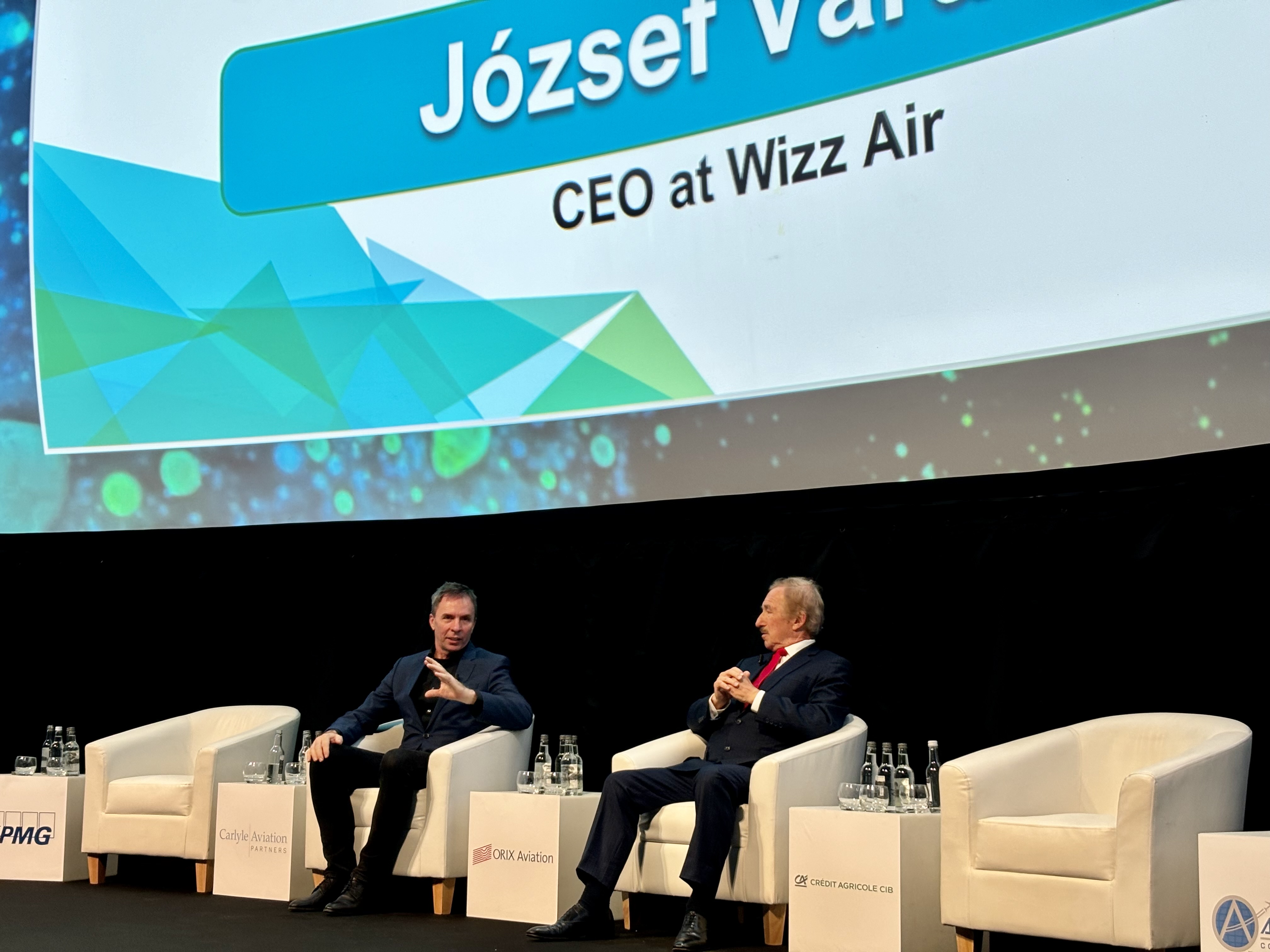The geared turbofan (GTF) engine issues are likely to be a “four to five year issue”, Wizz Air CEO Jozsef Varadi said at Airline Economics’ Growth Frontiers Dublin 2025 conference.
“At the beginning, we thought it would maybe be around 18 months to maybe two years,” said Varadi. “It’s become clear that it’s more like a four to five year issue.”
The airline was hit with the GTF contaminated engine issue with around 20% of its aircraft capacity on the ground as a result. This came shortly after its capacity being impacted by Russian invasion of Ukraine in 2022, with Varadi calling it “a perfect storm”.
“It’s not only the direct costs associated with the GTF issues, but also a lot of opportunity costs and strategic compromises we had to make,” he added. “We had to backfill our capacity with unintended inefficient capacity, which you do in order to not hand over your markets and business to your competitors. This is not because this is strategic, but it is a way of surviving within this context.”
Varadi said the company is “working closely with Pratt” to push through the issue, such as securing compensation for aircraft on ground.
“I’m not in the business of getting financially compensated,” said Varadi. “I’m in the business of flying passengers. When I can’t fly passengers, that is strategically harming my business strategy and my business model.”
He added that another issue with the GTF engine issues is the wait time for these engines to be inspected and the contaminated parts replaced.
“Pratt basically just replaces the contaminated materials and parts and the engine goes back to being on wing,” he said. “But the problem is that actually the bottleneck is not in the shop. The bottleneck is in the queuing time to get admitted to the shop. So today, we are waiting easily six months just to get admitted to the shop. They change these materials, but in a year from now or 18 months from now, we will have to do it again for the normal shop visit.”
Varadi maintained that the GTF is a “very good engine when it flies”, saying the problem lies in when “it doesn’t fly”.
The airline, which operates an all narrowbody Airbus fleet, is aiming to have 500 aircraft in its fleet by the end of the decade. Varadi had said in a previous press conference that this target could slip back a year or two as a result of Airbus delivery delays. The airline is set to receive its first A321XLR this year, along with a further seven through 2025, having 47 total on order.

